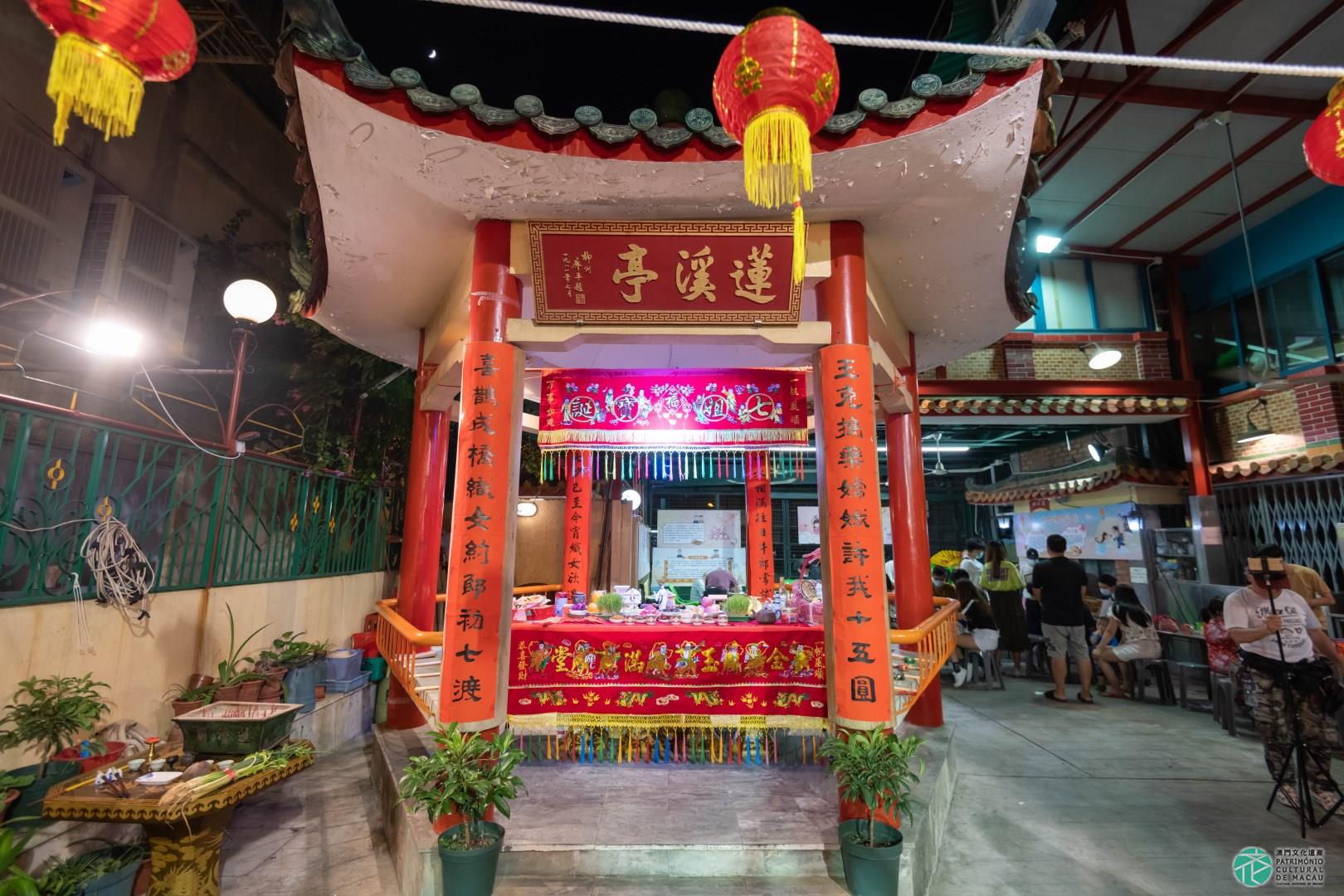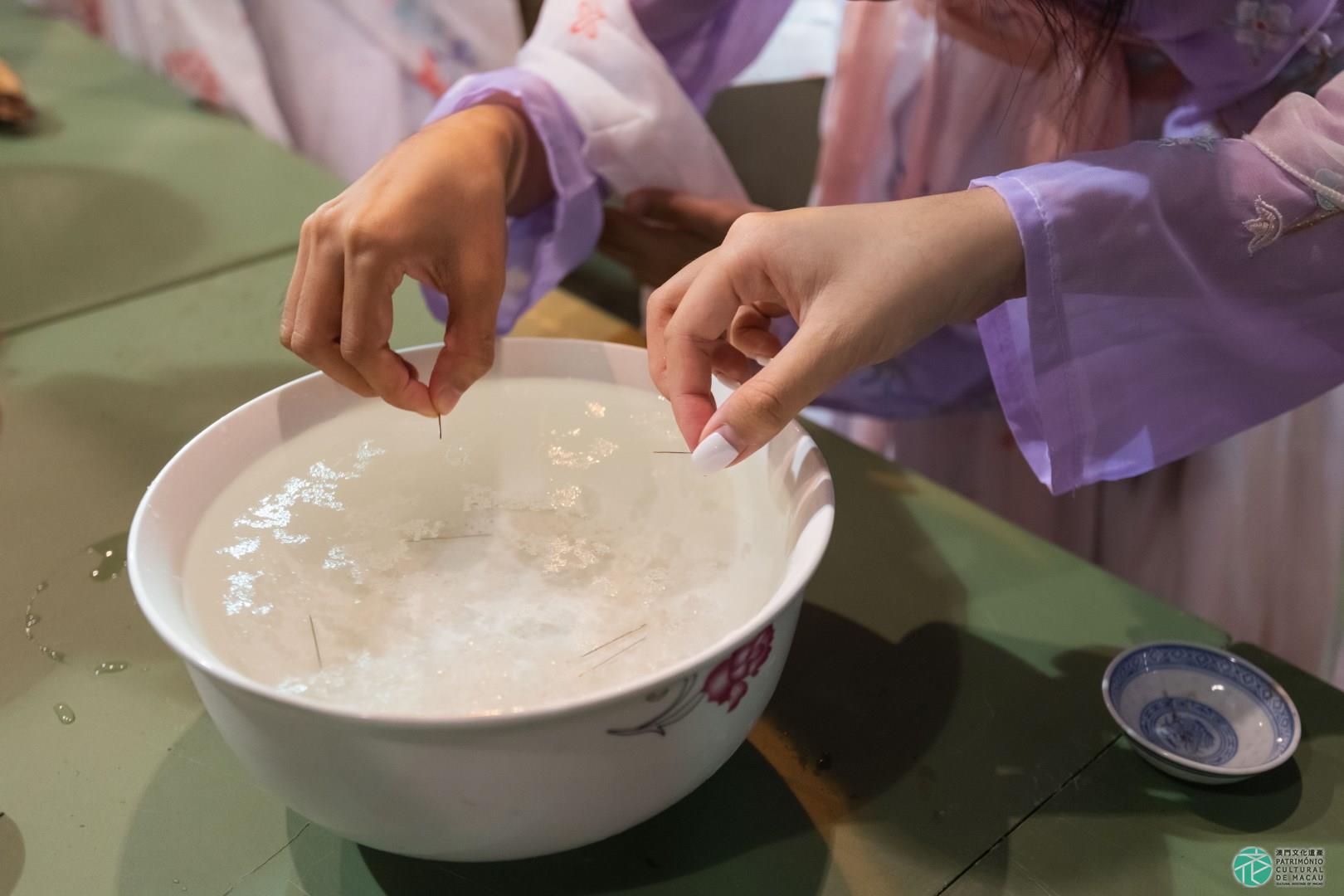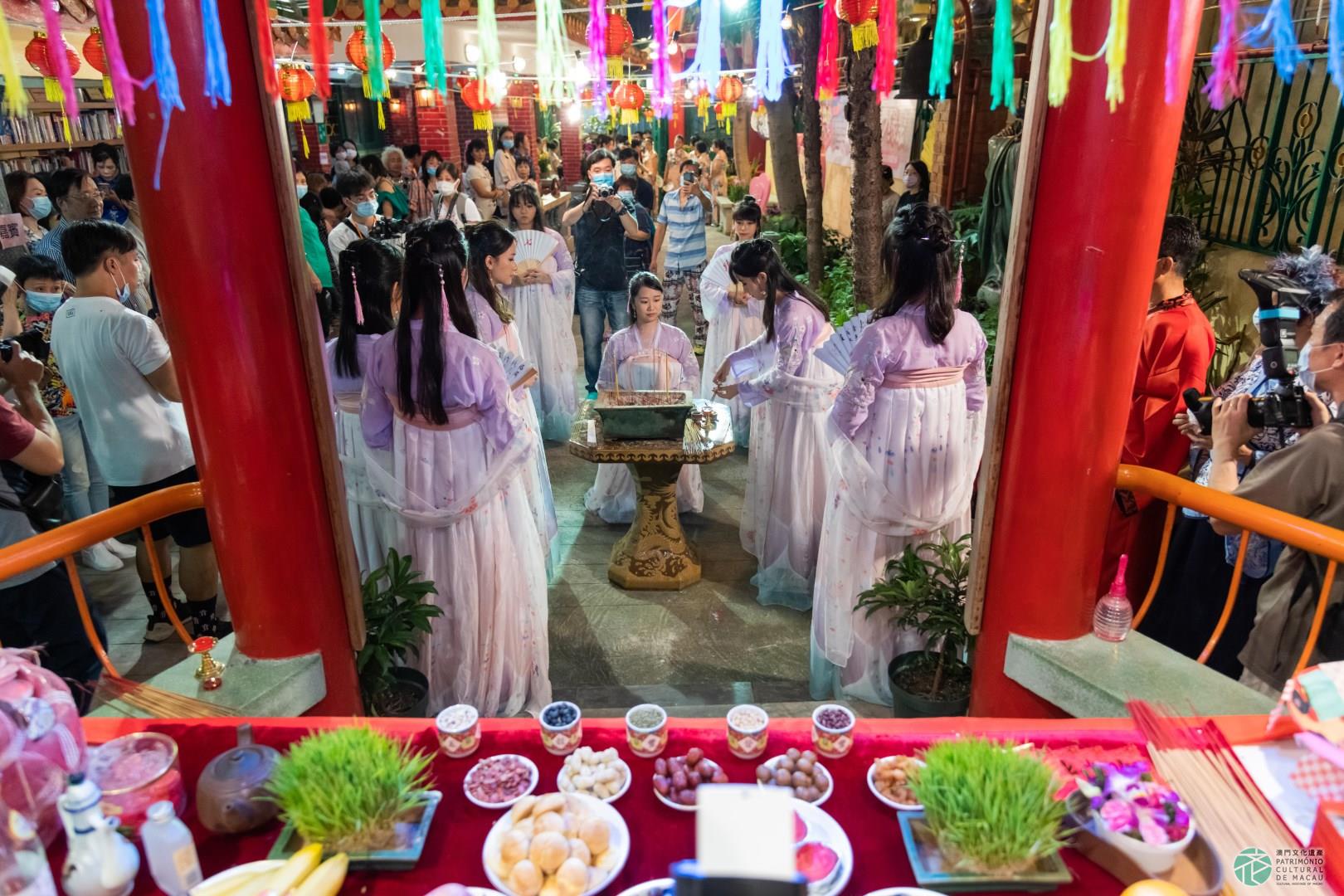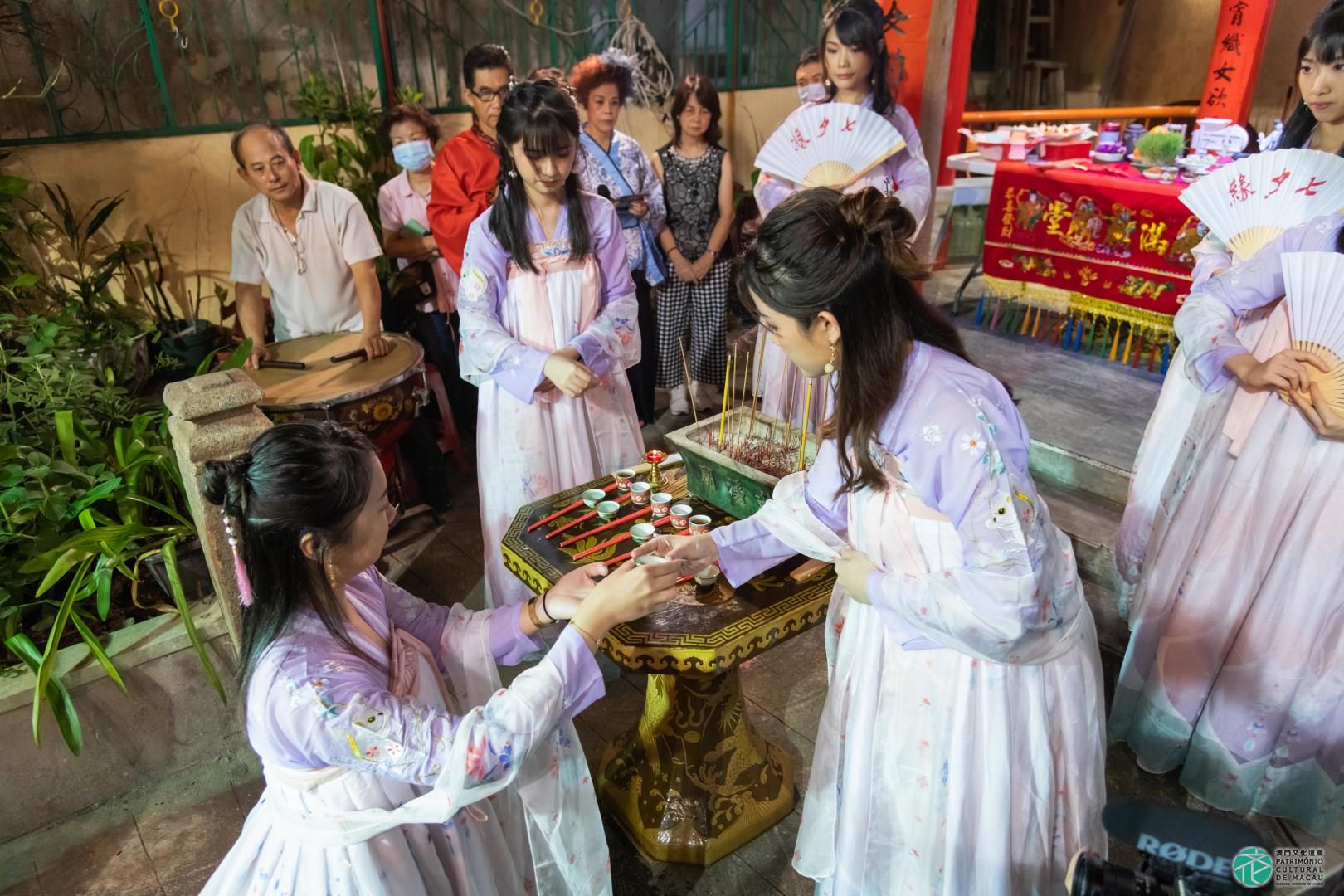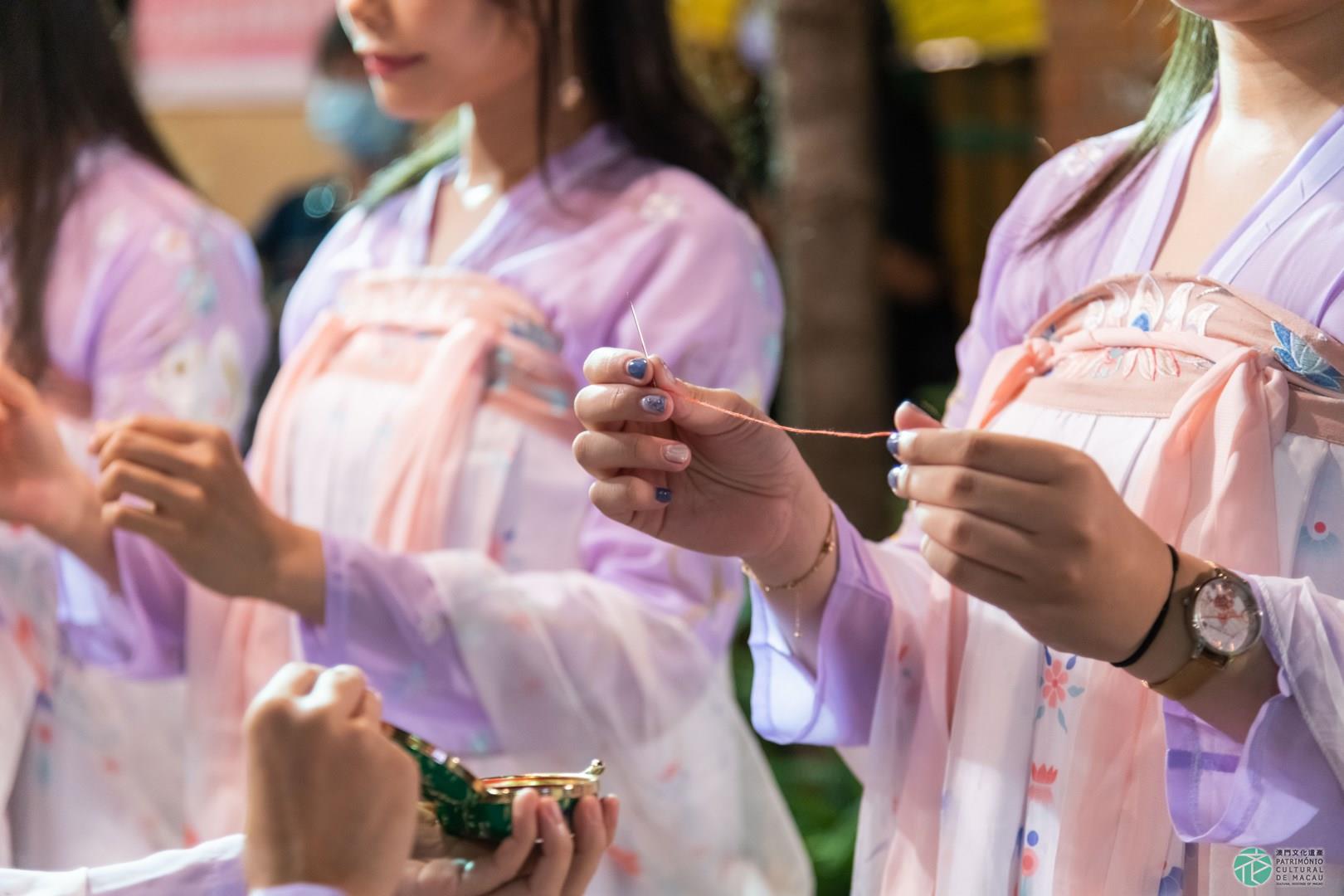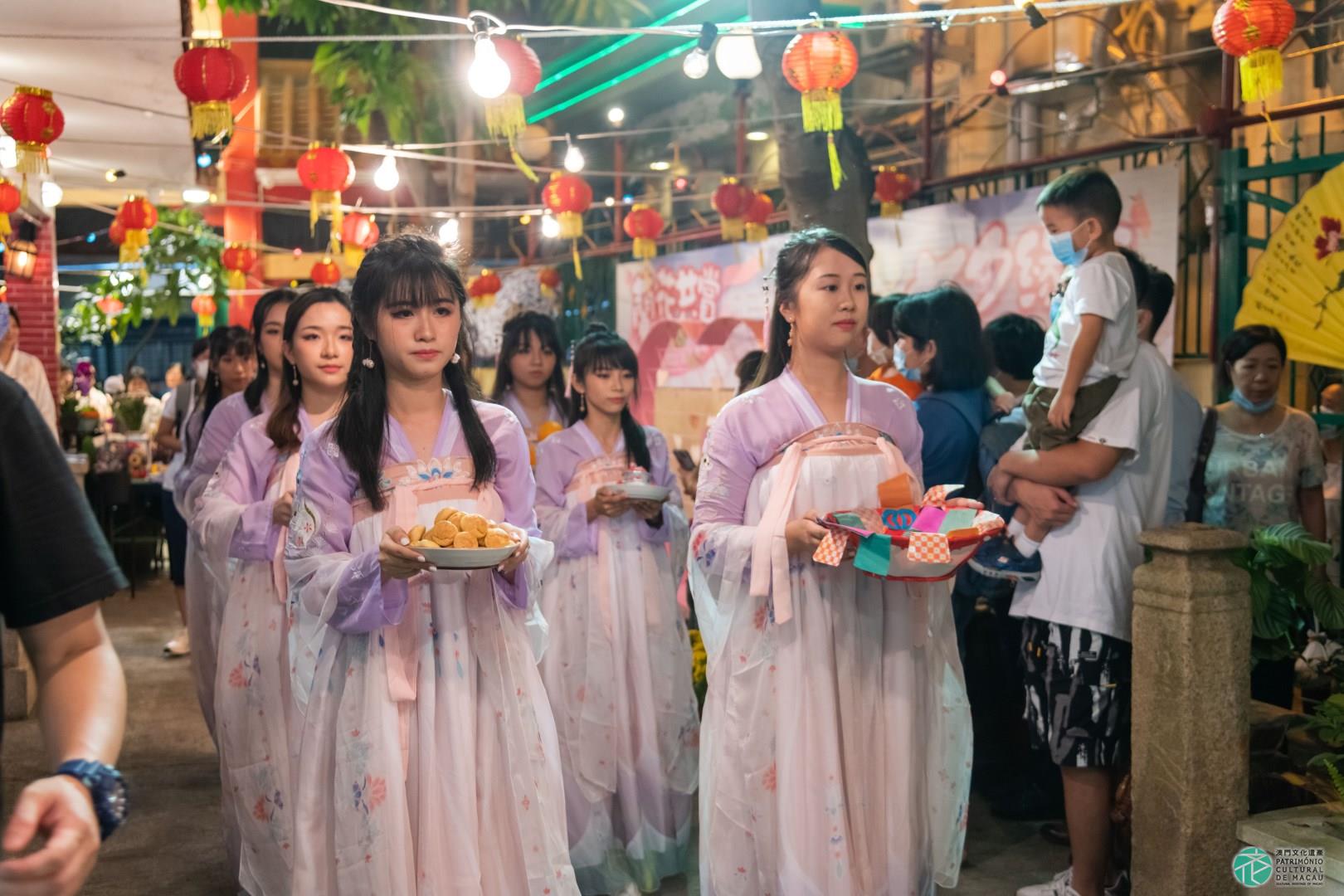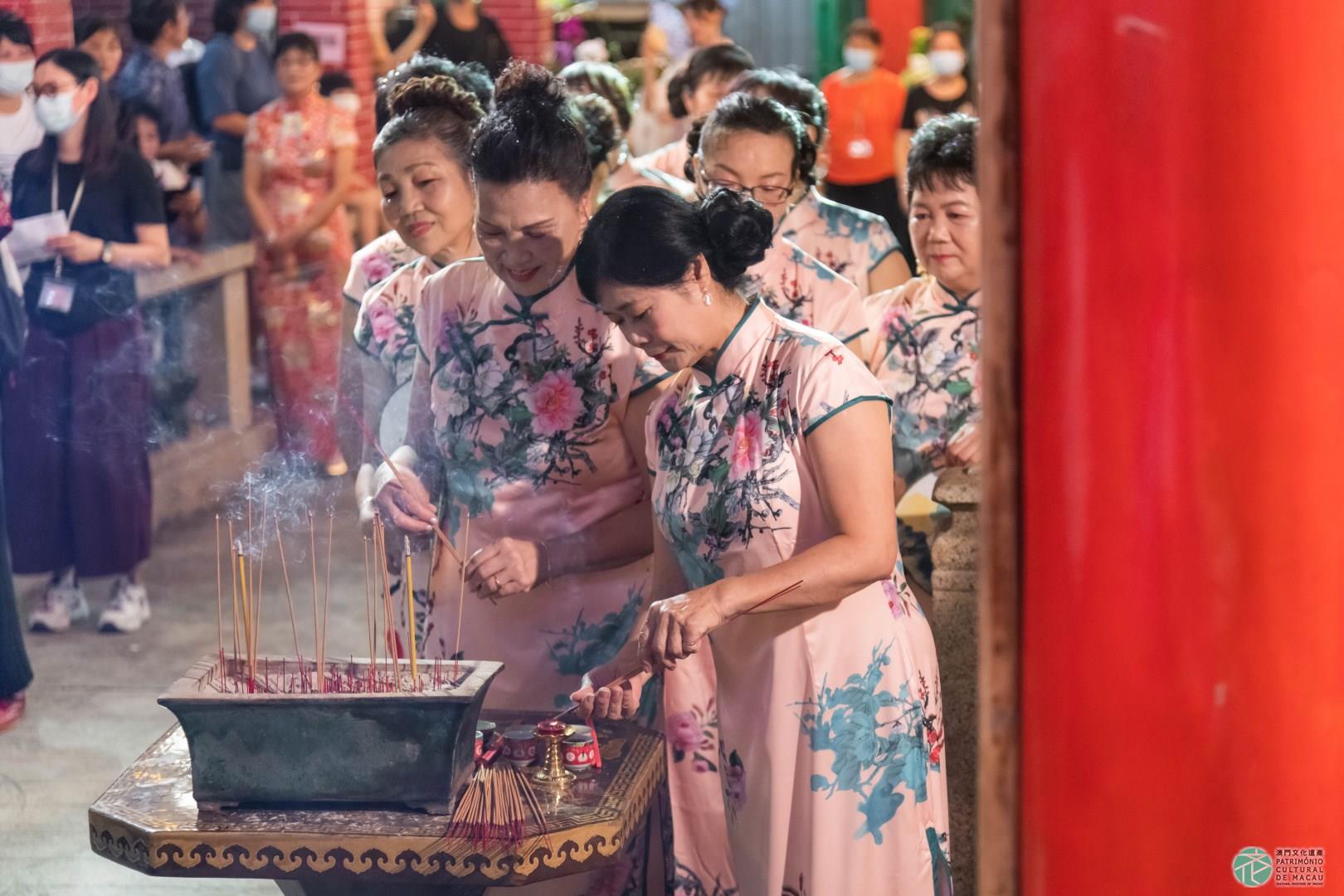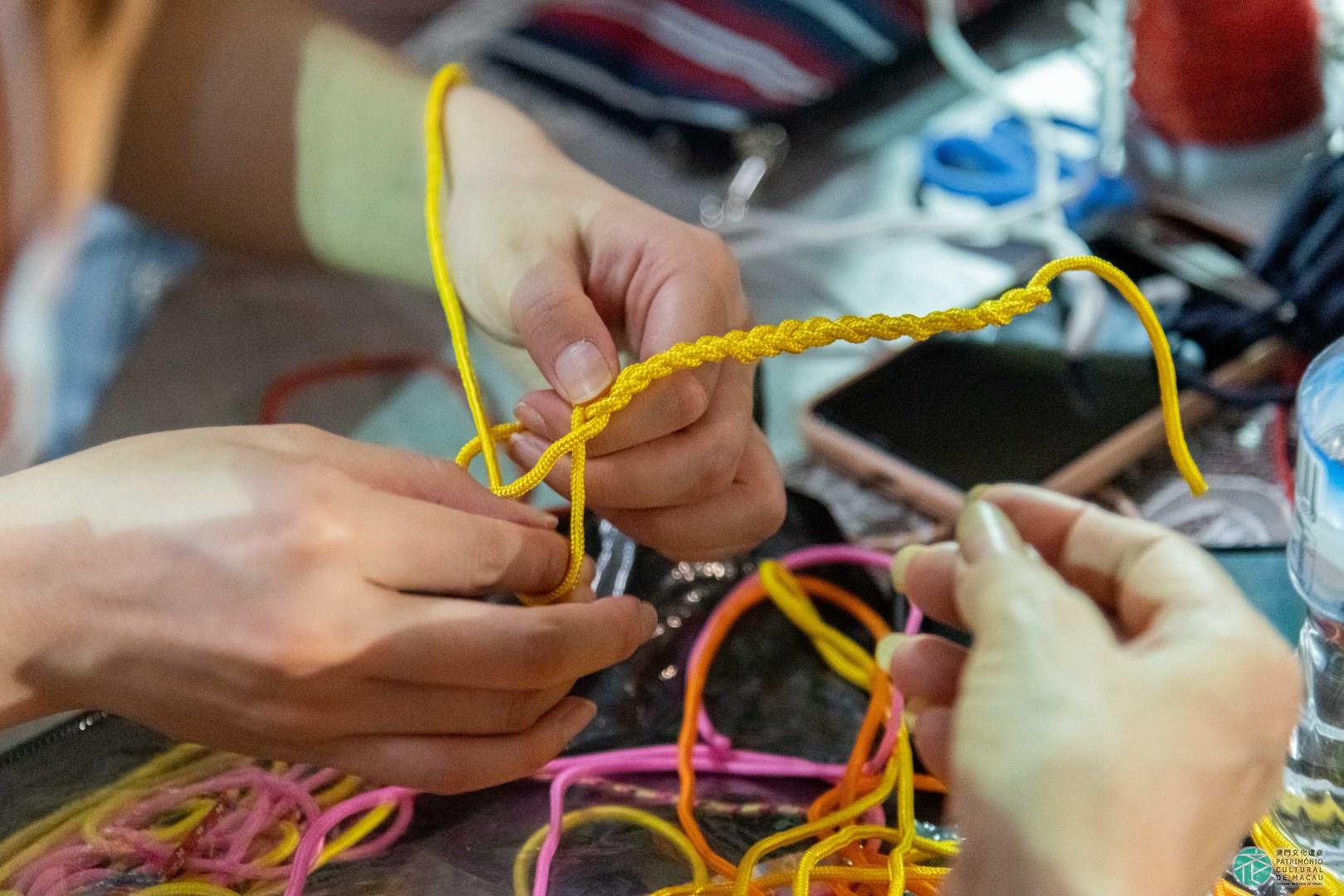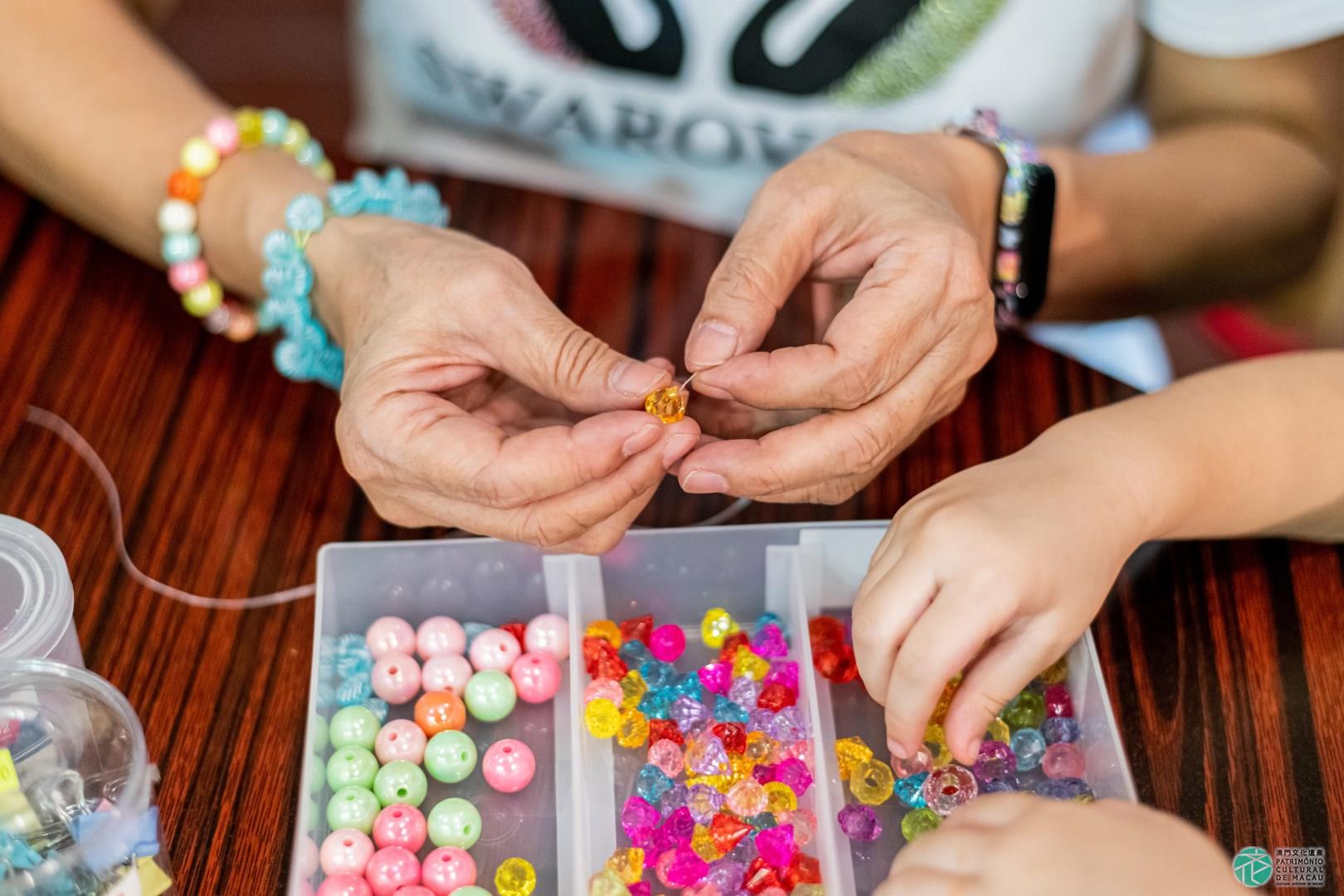Introduction:
The Qixi (Single Girls Feast) falls on the 7th day of the seventh lunar month, every year, and is also known as the so-called Festival of the Weaver’s Wishes or the Anniversary of the Weaver or Anniversary of the Seven Sisters. This tradition originated from the myth of two lovers, the weaver girl and the herdsman. According to historic records, the celebration of this feast dates back to the Eastern Han Dynasty, being especially popular in the Lingnan region, in the south of China. This is an occasion that has special significance for women, who pray for dexterity and to have more skills, while unmarried girls also express their wishes of finding good husbands. Their difference of aspirations are represented by different ritual articles that are used in the ceremonies, including for example a tray with hair brushing instruments, makeup items and weaving tools and materials, as well as porcelain bowls with grain or bean sprouts, which are offered in the traditional ceremonies to pray for dexterity and fertility.
Conservation Status:
In the past, the celebration of this event was particularly popular. Nowadays, with the evolution of society, many of the rituals were simplified, however, without losing the popular appeal of this celebration within the local communities.
Heritage Value:
Being one of the oldest and most traditional celebrations of Macao, the Qixi (Single Girls Feast) represents the desires of hereditary continuity inside families, which is a theme that is central to traditional Chinese culture, having integrated local characteristics, that are also significant for the study of local folk culture of Macao. The aspirations that are expressed in this feast, namely regarding ideals of happiness, traditional virtues and family ethics, are topics that are greatly valued by the Chinese nation.
